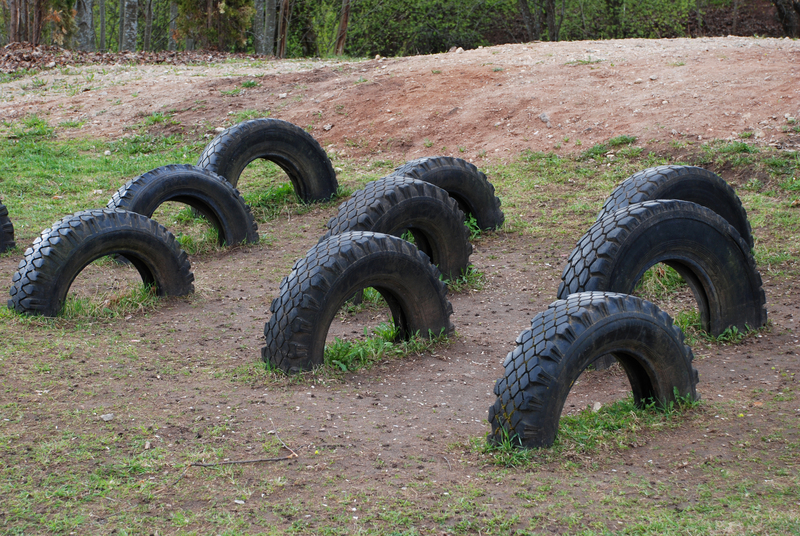Keep More in Your Wallet by Recycling Bulky Waste Items
Are you tired of high waste disposal fees and want to contribute positively to the environment? Learning how to effectively recycle bulky waste items can save you money and reduce the strain on local landfills. In this comprehensive article, discover smart and actionable ways to keep more in your wallet by recycling large and bulky waste items responsibly.

Why Bulky Waste Items Are a Financial and Environmental Challenge
Bulky waste items--also known as "large household items"--include objects that are too huge or heavy for standard curbside collection. Common examples include old mattresses, sofas, appliances, bicycles, furniture, and even construction debris.
- Disposal Fees: Many municipalities charge extra for disposing of oversized items, which can quickly add up.
- Environmental Impact: Sending these items to landfills increases pollution and reduces the availability of landfill space.
- Missed Value: Many bulky items contain recyclable materials or can be reused, repaired, or sold, turning waste into wealth.
By recycling your bulky items, you can help reduce landfill usage, lower waste management costs, and sometimes even earn cash. Let's explore how you can benefit financially and environmentally by embracing the recycling of bulk waste.
What Are Bulky Waste Items?
The definition of bulky waste varies depending on your location and local council, but generally includes items that cannot fit in your regular trash bin. Examples of these items are:
- Furniture: Chairs, tables, desks, wardrobes, and cabinets
- Appliances: Refrigerators, washing machines, ovens, microwaves
- Mattresses and Box Springs
- Bicycles and sports equipment
- Outdoor items: barbecues, patio furniture, garden waste containers
- Large electronics: televisions, stereos, printers
Recycling, reusing, or upcycling these bulky waste items can help keep more dollars in your wallet while supporting environmental sustainability.
How Recycling Bulky Items Can Save You Money
Saving on Landfill and Collection Fees
Many trash collection services and municipal dumps charge extra for disposing of large items. These fees can range from $25 to over $100 per item, depending on your location. Recycling bulky waste at designated recycling centers or through special programs can significantly reduce, or even eliminate, these costs.
Tax Deductions From Donated Items
If your furniture, appliances, or electronics are in good reusable condition, donating them to recognized charities can provide you with a tax deduction. Be sure to obtain a receipt for your donation, and you can deduct the fair market value in your annual tax returns--keeping more money in your wallet at tax time.
Sell or Upcycle for Extra Income
Before you haul bulky items to the curb, consider selling them online via platforms like Craigslist, Facebook Marketplace, or eBay. Even broken electronics or old appliances can be sold for parts or scrap metal. Upcycling--the process of transforming old or unwanted items into attractive or useful products--can also provide an opportunity to generate income or save costs for your household.
Step-By-Step Guide: Recycling Bulky Waste Items
1. Assess the Condition of Your Item
- If it's still in good shape, donation or resale may be the best option.
- If broken, check if it has valuable parts or recyclable materials like metal, wood, or glass.
- Research if there are community recycling days or events for large items.
2. Research Local Recycling Options
- Check your city or county website for bulky item recycling programs.
- Find out about free drop-off days, curbside collection events, or recycling depots that accept large items.
- Some manufacturers offer take-back programs or trade-ins for old appliances and electronics.
3. Donate Usable Items
- Charities like Habitat for Humanity ReStores, Goodwill, Salvation Army, and local shelters often accept large items.
- Donation is usually free, and you may receive a tax deduction receipt.
4. Sell or Give Away Online
- Snap a few photos and list your bulky waste items on platforms like OfferUp, Freecycle, Facebook Marketplace, or Letgo.
- Even items with cosmetic damage or missing pieces can be valuable to DIYers or those seeking parts.
5. Use Specialty Recyclers
- Search for local e-waste and metal recyclers for items like refrigerators, AC units, and electronics.
- Scrap metal yards often pay for old appliances and metal furniture--making it a win-win for your wallet and the environment.
6. Participate in Community Collection Drives
- Many towns host "bulk trash pick-up days" or recycling fairs, allowing you to dispose of items for free or at a reduced rate.
- Check local event calendars for upcoming bulky waste collection events.
Creative Ways to Reuse and Repurpose Bulky Items
If you're handy, resourceful, or enjoy crafting, upcycling bulky waste items can save you money while reducing your environmental footprint. Here are some inspiring ideas:
- Convert an old dresser into a kitchen island or bathroom vanity.
- Turn broken appliances into planters or yard art.
- Repurpose a wooden headboard as a garden bench or entryway organizer.
- Use old windows or doors as decorative wall hangings or room dividers.
- Transform a mattress frame into a compost bin or trellis.
*By thinking creatively, you not only save on disposal fees but also add unique touches to your home or garden*.
Environmental Benefits of Bulky Waste Recycling
Beyond the monetary incentives, recycling your large household waste contributes significantly to a healthier planet. Here's how:
- Reduces landfill burden: Every item recycled or reused keeps bulky waste out of our rapidly filling landfills.
- Saves energy and natural resources: Many materials, such as metals and glass, can be endlessly recycled--reducing the need for new raw materials.
- Lowers greenhouse gas emissions: Manufacturing products from recycled components uses less energy and produces fewer carbon emissions.
- Supports local charities and job creation: Donated and recycled goods often support job training programs and provide affordable furnishings to lower-income families.
Tips for Safe and Responsible Bulky Waste Recycling
- Remove all personal and sensitive data from electronics or smart appliances before recycling.
- Be aware of hazardous components in appliances, such as refrigerants in fridges, and ensure they are properly handled by professionals.
- Disassemble furniture and remove non-recyclable parts to increase recycling efficiency.
- Follow local guidelines and never illegally dump items, as fines can be steep and environmental damage severe.
- For items with emotional value, consider passing them on to friends or family before disposal.
Bulk Waste Recycling Resources and Programs
Manufacturer Take-Back Programs
Many large electronics and appliance manufacturers now offer take-back or trade-in programs. Apple, Best Buy, and Lowe's, for example, have appliance and electronics recycling bins where you can drop off your bulky items for safe and eco-friendly processing.
Municipal Bulky Waste Services
Most cities offer curbside pickup for large items on scheduled days. Some provide free pickup, while others charge a nominal fee. Check your local government's sanitation or public works website for:
- Accepted items and restrictions
- Scheduling and fees
- Drop-off locations and documents required
Community Reuse Organizations
- Habitat for Humanity ReStores
- Furniture banks
- Local shelters and church outreach programs
Scrap Yards and Material Recovery Centers
Metal furniture, appliances, and some electronics contain valuable metal components. Scrap yards usually pay cash for recycling these materials, turning your bulky waste into direct wallet savings.

Quick FAQ: Saving Money Through Bulky Waste Recycling
- Can I make money by recycling old appliances? Yes, many appliances can be sold to scrap yards or metal recyclers, especially those with valuable metals like copper or aluminum.
- Is it better to recycle or donate large items? Both options keep bulky items out of landfills, but donations may provide a tax deduction while recycling is best for broken or obsolete goods.
- How do I know if an item can be recycled? Check with your local recycling center, municipal website, or look for logos/labels on the item.
- Are there legal consequences for improper bulky waste disposal? Yes, illegal dumping can lead to hefty fines and criminal charges. Always follow your local waste regulations.
Conclusion: Turn Bulky Waste Into Wallet Savings
By recycling large household items, you can genuinely keep more in your wallet while protecting the environment. Whether you opt to recycle, upcycle, sell, or donate your bulky waste, each choice makes a difference.
- Save on costly landfill or collection fees
- Earn extra cash or enjoy valuable tax deductions
- Support local charities and green jobs
- Reduce your overall environmental impact
Make recycling or repurposing bulky waste a household habit. You'll find that the benefits go beyond your wallet--making your community cleaner, greener, and more sustainable for generations to come. Start today, and watch your savings grow while helping to build a better planet.
Start saving money and resources--recycle your bulky waste items today!